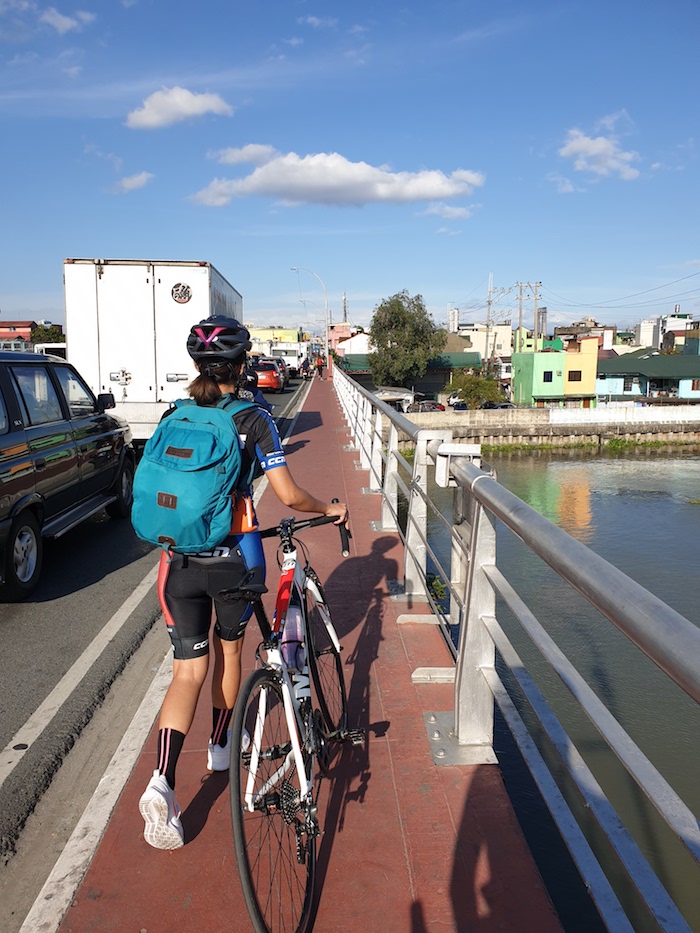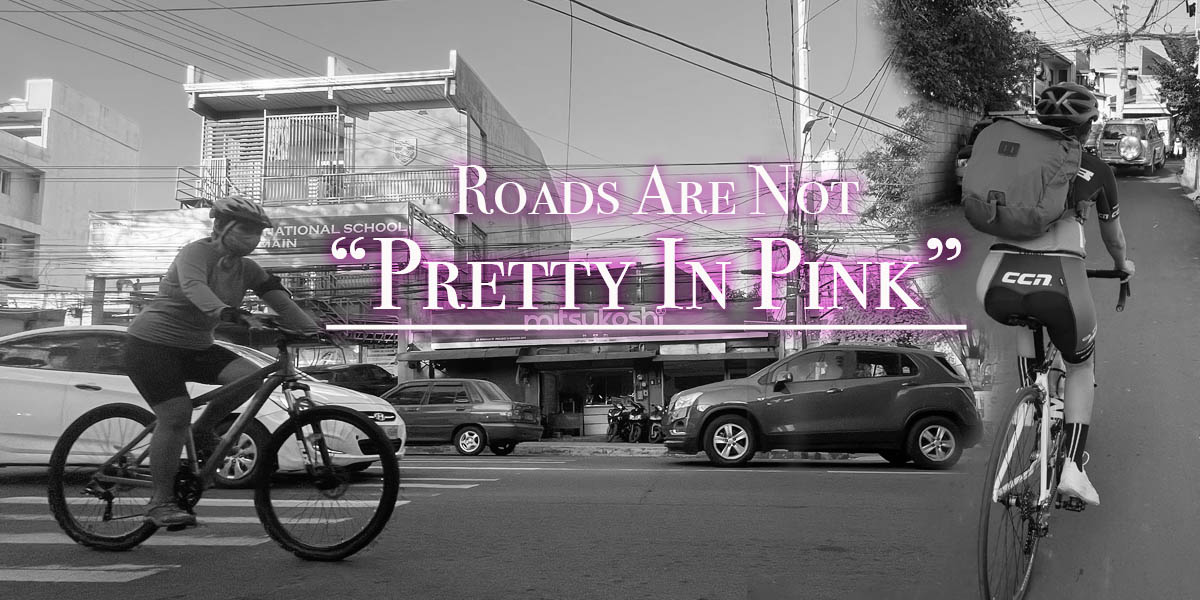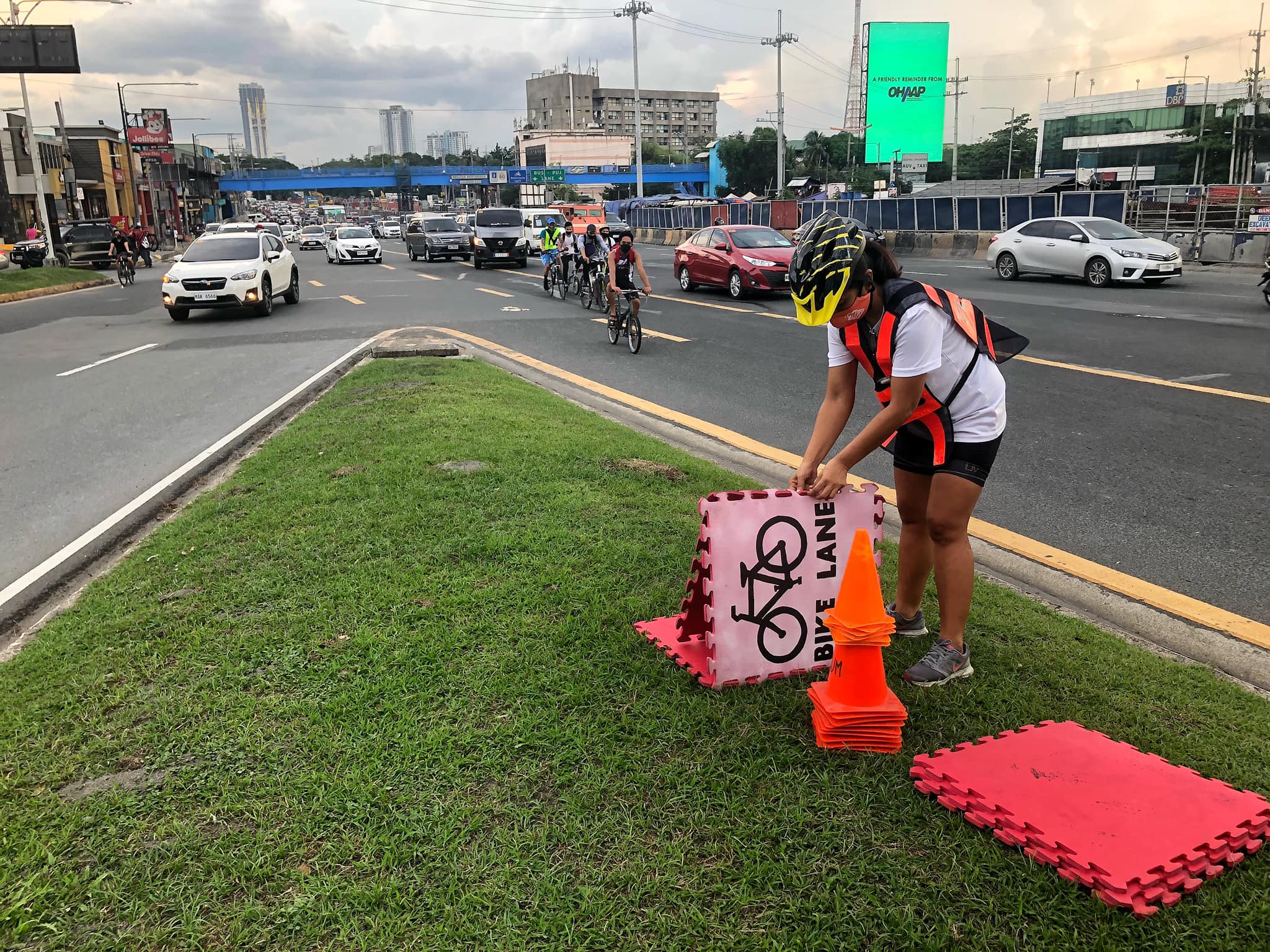Women cyclists still fear for their safety in the Philippines due to harassment
Traversing the country’s streets on a bike already has its share of dangers to begin with, but the journey becomes even more dangerous for women.
Besides road hazards, female cyclists also face the everyday threat of harassment and discrimination.
“We get catcalls. Wala ka pa nga sa bike, nakakakuha ka na ng (lewd) remarks,” says Ann Angala, a bike commuter for three years.
Ann’s bicycle gave her a ride to healing from domestic violence. Now, she advocates for women and cyclists’ rights through her group, Biker’s United Movement and other platforms.
Nevi Calma, who has been biking for over a year to her office at the Philippine Commission on Women (PCW), has experienced harassment as well.
“Padded shorts natin maikli. Tumataas ‘yan kapag nagbabike ka. So some titingnan ka, sasabihin, ‘Hi miss.’ O kaya sasabihin, ‘Ride safe miss.’ Mga pasimpleng ganung banat,” Calma says.

Insults are also hurled at female cyclists.
Ann recalls an incident where a school bus driver blocked her path along Elliptical Road in Quezon City only to shout at her, “Wow, babae!”
“The weaker, the dumber (cyclists) on the road, that’s how they see us,” Ann says.
These forms of harassment cause fear and anxiety for female cyclists who just want to ride their bikes.
“Ayoko rin naman mababastos ako sa kalye. Ang ginagawa ko naman, bike to work and then pag long ride, gusto ko lang ma-enjoy yung pagba-bike ko. Yun yung worry ko. ‘Yung fear ko minsan na, ma-catcall din,” said Jennifer Gan, a bike commuter and duathlete.
Online harassment
Off the road, female cyclists also experience harassment and discomfort online through some social media groups and pages.
Photos of female cyclists often attract sexist and lewd comments, especially in some groups that are not well policed. Ann asserts women should be free to wear and post anything without fear of receiving inappropriate comments.
Jennifer observes some men in online groups even have photos with women as a “trophy” to give them clout in a group.
“Mayroong nagpo-post na kunyari nagpa-picture sila sa babae. Tapos ‘yung mga comments talagang toward doon sa babae. Para siyang nagiging trophy,” says Jennifer
Bakit kailangang gawing object ang isang babae para maka-gain ka ng likes or confidence sa sarili?
In mid-2020, an issue broke out in the cycling community after a male professional cyclist took unsolicited photos of women he liked in the streets in the guise of selfies. Unknown to the women, the now-deleted photos were posted on the male professional cyclist’s page and other online groups where it gained tons of sexual remarks.
“Sinasabi nila ngayon – ‘lodi, iba ka. Lakas talaga.’ Bakit kailangang gawing object ang isang babae para maka-gain ka ng likes or confidence sa sarili?” asks Jennifer.

A 2016 survey done in Quezon City, the most populous city in Metro Manila, revealed three out of five women experienced harassment at least once. These include experiencing lascivious language, stalking, voyeurism, rubbing or touching, cat calling, indecent gestures, exhibitions and public masturbation, sending of pornographic pictures or videos, and cyberviolence. Of the total incidents, 70% happened during the day.
Amid the prevalence of harassment toward women, Ann says some women unfortunately tolerate the trend by disregarding it.
“It’s a culture. Nakakagulat lang na hindi pa nila nare-realize that it is very sexist,” Jennifer says. “Sabi nila tinotolerate nila yun kasi hindi naman daw alam nung taong yun na masama o mali yung ginagawa nila.”
But the fact is, a sexual harasser, whether on the streets or online, can now be penalized by an existing law.
Safe Spaces Act
Republic Act 11313 or the Safe Spaces Act of 2019 expounds the scope of the Anti-Harassment Act of 2015. Also known as the “Bawal Bastos Law,” it covers gender-based sexual harassment in the workplace, educational and training institutions, streets and public spaces, and cyberspace or online space.
“It is progress for women in the country because our previous law in sexual harassment is limited. It sanctions bosses harassing subordinates, or teachers harassing the students. But for Safe Spaces Act, it can be employee to employee or subordinate harassing the boss. Or students harassing the teacher. What happens online is also recognized, especially now in the new normal. This also covers other genders. The members of the LGBT community can also file charges under the Safe Spaces Act,” says Nevi, who is also the PCW information officer.
PCW encourages victims to immediately report an abuse to the nearest authority, which could be the police, an officer of the Metro Manila Development Authority, or even an barangay official so a case can be built up immediately.

Online sexual harassment victims may also use posts and comments as evidence. Under the “Bawal ang Bastos” law, online sexual harassment are acts that use information and communications technology in terrorizing and intimidating victims.
“It can be through physical, psychological, emotional threats and unwanted sexual, misogynistic, homophobic, sexist remarks online through comments or direct and private messages. It also includes cyber stalking and incessant messaging, even uploading and sharing without the consent of the victim, any form of media that contains photos or voice or videos with sexual content and many others,” explains Nevi.
Through their campaigns and by partnering with private institutions, the PCW is fulfilling its mandate to inform the public on the provisions of the Safe Spaces Act.
Data from the Philippine National Police show a total of 59 cases have been filed under Safe Spaces Act since the start of lockdown on March 15 last year.
A lot of women think just because we have Women’s Month, we already have it great.
For Ann, Jennifer and other women’s rights advocates, there is clearly much work to be done to keep women safe.
“A lot of women think just because we have Women’s Month, we already have it great. It’s just like we are given a bike lane that is painted as a woman. We are not in a protected bike lane. So please, let’s say thank you that is happening, but let us not sit on these laurels that are not laurels yet. Because the truth is, there is still no gender equality,” asserts Ann.
Jennifer believes educating the community is key.
“There are people who think what they are doing is right. They need to know what is abuse and what is prohibited by law. Let us help each other to make the space safe."


